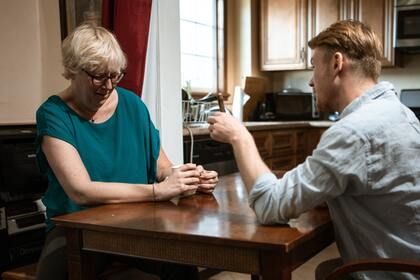
Criticism is a common issue that affects many relationships, whether romantic or platonic. It can be damaging and hurtful, often causing irreparable damage to the bond between two people. In this article, we will explore the impact of criticism on relationships, how it affects both parties, and how to avoid it.
What is Criticism in Relationships?
Criticism is defined as the act of passing judgment, finding fault, or expressing disapproval towards another person's behavior, personality, or character. It's important to note that criticism is different from constructive feedback, which is intended to help someone improve or grow. Criticism, on the other hand, is often delivered in a negative and hurtful way, without the intent of helping the person.
The Damage Caused by Criticism in Relationships
Criticism can have a severe and lasting impact on relationships. Here are some ways criticism can be damaging:
- Lowers self-esteem: Constant criticism can wear down a person's self-esteem, leading to feelings of worthlessness and inadequacy.
- Erodes trust: Criticism can erode the trust between two people, leading to feelings of betrayal and insecurity.
- Creates defensiveness: When a person feels constantly criticized, they may become defensive and resistant to feedback, leading to further tension and conflict.
- Causes resentment: Criticism can create resentment between two people, leading to a breakdown in communication and emotional distance.
- Leads to isolation: If criticism is not addressed, it can lead to a breakdown in the relationship, with one person distancing themselves emotionally or physically from the other.
How to Avoid Criticism in Relationships
Avoiding criticism in relationships is essential for maintaining a healthy and lasting bond. Here are some strategies for avoiding criticism:
- Practice empathy: Instead of criticizing, try to put yourself in the other person's shoes and understand their perspective.
- Use "I" statements: Instead of pointing fingers and criticizing, use "I" statements to express your feelings and concerns.
- Practice active listening: Listen to the other person's concerns without interrupting or dismissing them.
- Give positive feedback: Focus on what the other person is doing well and offer positive feedback rather than criticism.
- Communicate clearly: Communicate your needs and boundaries clearly and respectfully, and encourage the other person to do the same.
Criticism is a damaging and hurtful behavior that can severely impact relationships. It's important to recognize the damage it can cause and take steps to avoid it. By practicing empathy, using "I" statements, active listening, positive feedback, and clear communication, it's possible to avoid criticism and build a healthy and lasting relationship.
Healing a bad relationship spiritually is a journey, not a destination. It requires patience, compassion, and a willingness to let go of old patterns and beliefs that no longer serve you. With time and effort, you can create a more loving and harmonious relationship with the other person.















Leave Comment Below
0 Comments